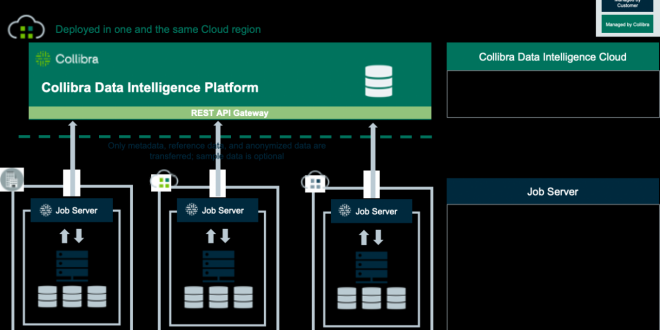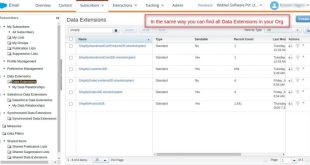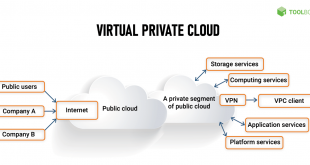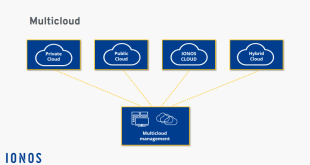Data intelligence cloud for B2B is revolutionizing the way businesses operate, enabling them to make data-driven decisions that drive growth and profitability. This technology empowers B2B companies to collect, analyze, and leverage data to gain valuable insights into their customers, markets, and operations.
With the help of data intelligence clouds, B2B businesses can improve their customer segmentation, lead generation, and sales forecasting efforts. By understanding customer behavior and preferences, businesses can tailor their marketing and sales strategies to meet the specific needs of each customer segment.
This leads to increased conversion rates, improved customer satisfaction, and ultimately, higher revenue.
Data Intelligence Cloud for B2B
In the competitive B2B landscape, data intelligence clouds have emerged as transformative tools that empower businesses to harness the power of their data and gain a strategic advantage. A data intelligence cloud is a cloud-based platform that integrates data from various sources, enabling businesses to analyze, interpret, and derive insights from their data to make informed decisions.
Leveraging data intelligence in the B2B context offers numerous benefits. It helps businesses understand their customers’ needs and preferences, identify opportunities for growth, optimize their operations, and mitigate risks. By gaining a comprehensive view of their data, B2B companies can make data-driven decisions that drive revenue, improve customer satisfaction, and enhance overall business performance.
Successful B2B Companies Utilizing Data Intelligence Clouds
Several B2B companies have successfully implemented data intelligence clouds to achieve significant business outcomes. For instance, Adobe utilized a data intelligence cloud to gain insights into customer behavior, leading to a 20% increase in conversion rates. Salesforce, a leading CRM provider, leveraged a data intelligence cloud to improve its sales forecasting accuracy by 30%. These examples demonstrate the tangible benefits of data intelligence clouds for B2B businesses.
Data Collection and Integration
In the realm of B2B, harnessing data from diverse sources is paramount for gaining actionable insights. Various methods exist for data collection, including surveys, website analytics, CRM systems, social media monitoring, and third-party data providers.
Data Integration, Data intelligence cloud for b2b
Data integration plays a crucial role in consolidating data from disparate sources into a unified and coherent view. This process ensures that data is consistent, accurate, and accessible for analysis. However, challenges arise during data integration, such as data quality issues, schema mismatches, and data redundancy.
Data Quality and Accuracy
Maintaining data quality and accuracy is essential for effective data analysis. Best practices include:
- Establishing data validation rules to ensure data integrity.
- Implementing data cleansing techniques to remove duplicate or erroneous data.
- Enforcing data standardization to ensure consistency across different sources.
Data Analytics and Insights
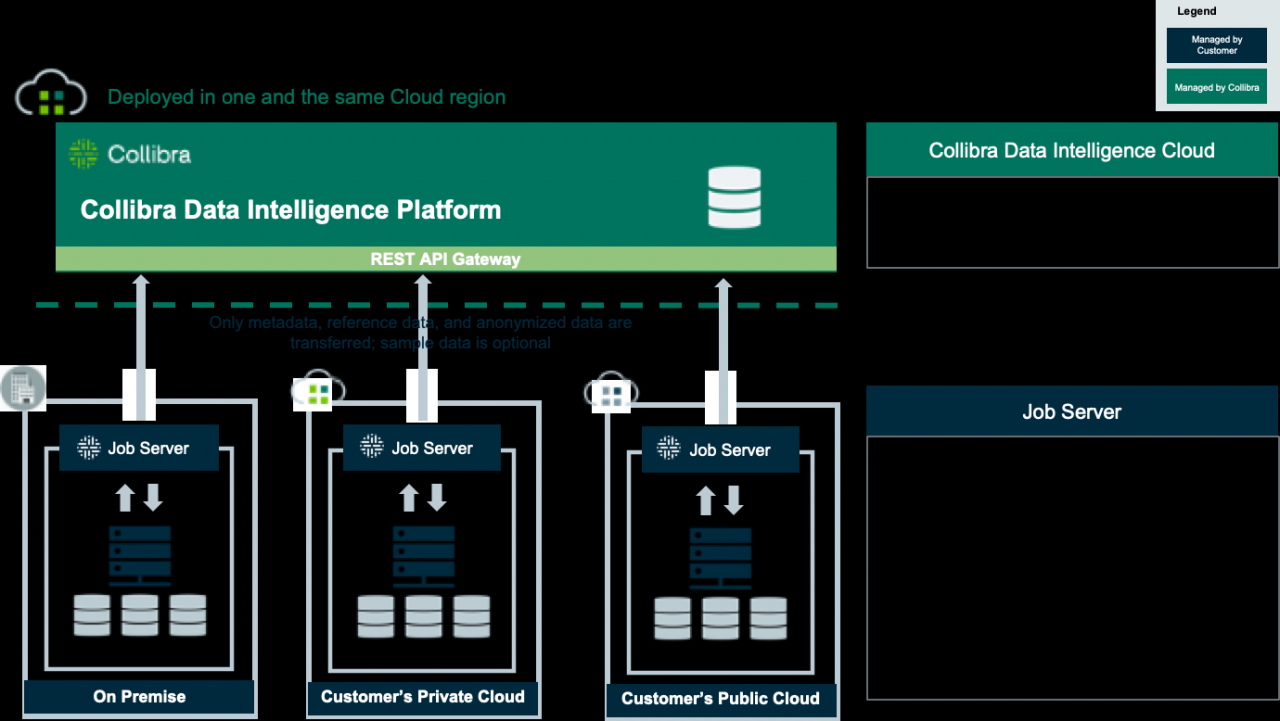
Data analytics plays a crucial role in unlocking the value of B2B data. By applying advanced analytics techniques, businesses can extract meaningful insights that provide a comprehensive understanding of customer behavior, market trends, and competitive dynamics.
Predictive Analytics
Predictive analytics leverages historical data to forecast future outcomes and identify potential opportunities or risks. It employs techniques like machine learning and statistical modeling to analyze patterns and make predictions about customer churn, sales performance, and market demand.
Customer Segmentation
Customer segmentation involves dividing customers into distinct groups based on shared characteristics, behaviors, or preferences. This helps businesses tailor marketing campaigns, product offerings, and customer service strategies to specific segments, resulting in increased engagement and loyalty.
Trend Analysis
Trend analysis identifies patterns and trends in data over time. It enables businesses to monitor market changes, anticipate customer needs, and adjust their strategies accordingly. By analyzing historical trends and current data, companies can gain insights into emerging opportunities and potential threats.
Cloud Infrastructure and Security
Harnessing cloud infrastructure for data intelligence in B2B environments offers significant advantages. It enables scalable and cost-effective data management, enhances collaboration, and empowers businesses to leverage advanced analytics capabilities.
However, ensuring the security of sensitive B2B data in the cloud is paramount. Robust security measures are essential to safeguard data from unauthorized access, breaches, and cyber threats.
Selecting a Reliable Cloud Provider
Choosing a reputable and reliable cloud provider is crucial for data intelligence purposes. Factors to consider include:
- Security certifications and compliance:Assess the provider’s adherence to industry-recognized security standards and regulations, such as ISO 27001 and GDPR.
- Data encryption and access controls:Evaluate the provider’s encryption protocols and access management mechanisms to ensure data privacy and integrity.
- Data residency and sovereignty:Consider the provider’s data center locations and policies regarding data storage and processing to comply with regulatory requirements.
- Disaster recovery and business continuity:Ensure the provider has robust disaster recovery plans and business continuity measures in place to minimize data loss and service disruptions.
Data Intelligence Applications
Data intelligence is revolutionizing the way B2B companies operate. By leveraging data to gain insights into customer behavior, preferences, and trends, businesses can make more informed decisions, improve efficiency, and drive growth.
Some common applications of data intelligence in B2B include:
- Customer segmentation: Data intelligence can be used to segment customers based on their demographics, firmographics, behavior, and other factors. This information can then be used to tailor marketing and sales campaigns to specific customer segments.
- Lead generation: Data intelligence can help businesses identify and qualify potential leads. By analyzing data from website traffic, email campaigns, and other sources, businesses can identify leads that are most likely to convert into customers.
- Sales forecasting: Data intelligence can be used to forecast sales based on historical data, current trends, and other factors. This information can help businesses plan their sales and marketing efforts more effectively.
The potential impact of data intelligence on B2B marketing, sales, and customer success is significant. By leveraging data to gain insights into customer behavior, businesses can:
- Improve customer segmentation and targeting
- Generate more qualified leads
- Forecast sales more accurately
- Improve customer satisfaction
- Drive growth
Here are a few case studies that demonstrate how data intelligence has transformed B2B operations:
- Salesforce: Salesforce used data intelligence to improve its lead generation efforts. By analyzing data from website traffic, email campaigns, and other sources, Salesforce was able to identify leads that were most likely to convert into customers. This information helped Salesforce increase its lead conversion rate by 20%.
- Adobe: Adobe used data intelligence to improve its customer segmentation. By analyzing data from customer surveys, website traffic, and other sources, Adobe was able to segment its customers into different groups based on their needs and interests. This information helped Adobe tailor its marketing and sales campaigns to specific customer segments, which resulted in a 15% increase in sales.
Data intelligence is a powerful tool that can help B2B companies improve their marketing, sales, and customer success efforts. By leveraging data to gain insights into customer behavior, businesses can make more informed decisions, improve efficiency, and drive growth.
Future Trends and Challenges: Data Intelligence Cloud For B2b
The future of data intelligence for B2B holds immense promise, but it also presents challenges that businesses must address to fully capitalize on its potential. Emerging trends, such as AI-powered analytics and real-time decision-making, are shaping the landscape and creating new opportunities for businesses to gain a competitive edge.
One of the key challenges associated with the adoption of data intelligence in the B2B landscape is the need for businesses to invest in the necessary infrastructure and expertise. Data intelligence requires a robust data infrastructure, including data collection and integration tools, data analytics platforms, and cloud computing resources.
Businesses must also invest in training their workforce to develop the skills needed to effectively manage and analyze data.
Emerging Trends
- AI-powered analytics:Artificial intelligence (AI) is revolutionizing the way businesses analyze data. AI-powered analytics tools can automate data analysis tasks, identify patterns and trends, and make predictions. This allows businesses to gain deeper insights into their data and make more informed decisions.
- Real-time decision-making:The ability to make decisions in real time is becoming increasingly important in the B2B landscape. Data intelligence platforms can provide businesses with real-time insights into their data, enabling them to make faster and more accurate decisions.
Challenges and Opportunities
- Data security and privacy:Data intelligence involves the collection and analysis of large amounts of data, which raises concerns about data security and privacy. Businesses must implement robust security measures to protect their data from unauthorized access and use.
- Data integration:Integrating data from multiple sources can be a challenge, especially for businesses with complex data environments. Businesses must invest in data integration tools and expertise to ensure that their data is consistent and reliable.
Recommendations
- Invest in data infrastructure and expertise:Businesses should invest in the necessary infrastructure and expertise to support their data intelligence initiatives. This includes investing in data collection and integration tools, data analytics platforms, cloud computing resources, and training for their workforce.
- Develop a data strategy:Businesses should develop a clear data strategy that Artikels their goals for data intelligence and how they plan to achieve them. This strategy should include plans for data collection, data analysis, and data governance.
- Embrace new technologies:Businesses should embrace new technologies, such as AI-powered analytics and real-time decision-making, to gain a competitive edge. These technologies can help businesses gain deeper insights into their data and make more informed decisions.
Final Review
In conclusion, data intelligence cloud for B2B is a powerful tool that can help businesses gain a competitive advantage in today’s data-driven market. By leveraging the power of data, B2B companies can make informed decisions, improve their operations, and drive growth.
 Bussines News Daily
Bussines News Daily
